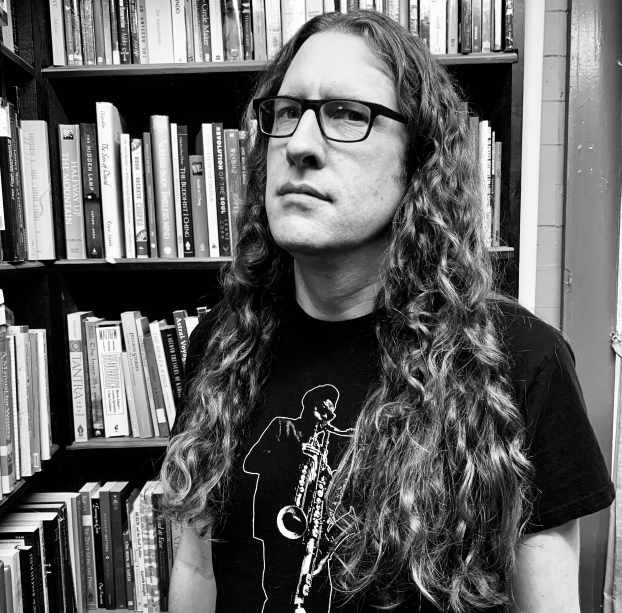Francis Bradley
Professor

Biography
Francis (Cisco) Bradley is an award-winning author, film director, and screenwriter. He is a scholar of the social, cultural, and intellectual history of the African diaspora as well as a cultural theorist and historical ethnographer. Since 2011, his work has focused on music and migration, particularly as it has manifested in the United States. His current research focuses on tracing the oral transmission of African music in North America and the Caribbean from the 16th century to the present. His work has been widely reviewed in scholarly journals, the LA Review of Books, The Wire, and other publications. He has been awarded the Digital Studies Fellowship at the John W. Kluge Center at the Library of Congress, a literary grant from the New York State Council of the Arts, the Charlotte W. Newcombe Fellowship from the Institute for Citizens and Scholars, and a dissertation fellowship from the Fulbright Program.
He is the director of the Music and Migration Lab at the Pratt Institute. The lab is composed of an international team of researchers who work at the intersection between migration/mobility studies and music studies. Together with partners at New York University, Rutgers University, City University of New York, University of Geneva, University of Birmingham, University of Sydney, Griffith University, independent scholars, and musicians, the lab collects and preserves oral histories and leads mapping projects related to national and global cultural movements. The lab has recorded over 500 oral history interviews with more ongoing. Some of the interviews appear on Jazz Right Now which Prof. Bradley founded in 2013.
Bradley teaches courses that tell the histories of people in motion: migrants, travelers, seafarers, merchants, musicians and artists, pirates, pilgrims, fugitives, and refugees who have made homes outside of their points of origin.
Education
Ph.D., History, University of Wisconsin (2010)
M.A., History, University of Wisconsin (2006)
B.A., History, University of Wisconsin (1999)
Publications and Projects
As a film director, he screened his first film, Take Me to Fendika (2024) at festivals in North America, Africa, Europe, and Asia. The film illuminates the traditional and innovative multi-ethnic musical culture of Ethiopia at what has been called “the best venue in Africa” through its founder, world-renowned dancer, Melaku Belay. The film won best documentary at the Africa-France-USA International Film Festival, 3rd Zepstone International Film and Music Festival (official affiliate of the Cannes Film Festival), and the 2nd African Cultural Film Festival. Bradley was also awarded best director of a documentary short film at the London Vision Film Festival. For this film, he worked with Briana Monet (editor), Salem Daniel (producer), and two Pratt students, Aston “Setshi” Ford (associate director, director of photography, co-producer) and Eric Rosario (graphic design), among others. He is currently developing a TV documentary series on music and migration in the United States.
His fourth book, I Hear Freedom: The Great Migration, Free Jazz, and Black Power (forthcoming, Columbia University Press, 2026) is the first of a multi-volume study of Black networks of mobility/migration and how they gave rise to successive waves of music. This particular volume examines fugitive and free networks in what he terms the “Greater Ohio Valley” and how they coalesced in Detroit, Cleveland, and Buffalo to produce the free jazz generation of the 1960s-70s. By drawing lines between cities aned rural areas across the south and tracing movements north, he recontextualizes free jazz amidst Black Power movements of the 1960s, especially the uprisings in Cleveland and Detroit in the late 1960s. Then the book follows this brilliant wave of Black experimentalists as they moved around the country and the globe shedding deep influence upon the development of the artform of jazz.
His third book, The Williamsburg Avant-Garde: Experimental Music and Sound on the Brooklyn Waterfront (Duke University Press, 2023) examines the rise and fall of the Williamsburg, Brooklyn, underground music scene from the late 1980s to the early 2010s as the vanguard of new American music at the turn of the millennium. The project examines the role of gentrification and global capital in the shaping of cultural production in New York City.
His second book, Universal Tonality: The Life and Music of William Parker (Duke University Press, 2021), is a critical biography of the free jazz bassist. Situating Parker within the history of the African diaspora in the Americas, he charts the rise of Parker in the New York scene from the early 1970s to the present, illustrating his associations with many figures including Cecil Taylor, Milford Graves, Charles Gayle, Cooper-Moore, Daniel Carter, and Hamid Drake.
His first book, Forging Islamic Power and Place: The Legacy of Shaykh Da’ud bin ‘Abd Allah al-Fatani in Mecca and Southeast Asia (University of Hawaii Press, 2016) examines how an Islamic textual tradition became the currency for the rise of a transnational Islamic revivalist network originating out of what is now southern Thailand and extended across the Indian Ocean to South Asia, the Middle East, and southern Africa.